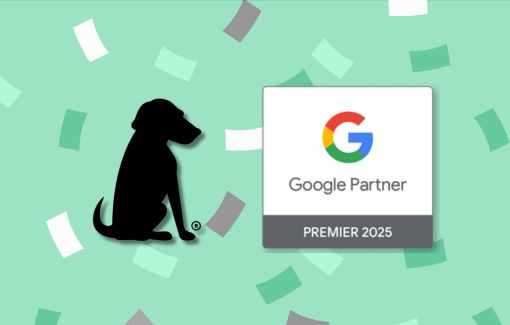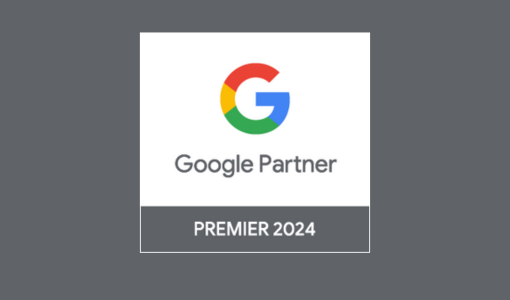Answer Engine Optimization, or AEO, helps search engines deliver direct answers to user queries. For tourism brands, it’s a way to appear in top results when travelers ask questions like “What to do in Savannah this weekend?” Optimizing content to match those queries makes it easier to reach potential guests at key moments in their decision-making.

Image created using generative AI
Answer engine optimization is quickly becoming a critical part of digital visibility. As AI-generated content continues to surface in top positions across Google and other search engines, traditional SEO alone is no longer enough. These AI-driven results often pull quick answers from web content and serve them up before a user ever clicks. For travel marketing and tourism marketing teams, this shift can mean missed opportunities if their content isn’t properly structured. Answer engine optimization is not just about being found. It’s about being found first in the places travelers are searching right now.
This article breaks down what answer engine optimization is, why it matters, and how tourism brands can stay ahead. As the way people plan and book travel continues to change, Blackdog Advertising is here to guide clients through the evolving landscape. With decades of experience in tourism marketing and a deep understanding of digital behavior, we help our partners build smart strategies that increase visibility and drive bookings.
Search is changing + AI results could impact your organic traffic search
Search engines are changing the way they display results. AI-generated answers now appear at the top of many search pages, often pushing down even paid ads. These results are most commonly triggered by informational searches. Travelers are asking questions like “What time does this landmark open?” or “What’s the history of this attraction?” They are also using AI tools to help with planning questions such as “What should I do in Savannah?” or “When is the best time to visit Key West?”
These types of questions are shaping the way travelers plan, book, and choose their experiences. If your business is not showing up in these AI-driven results, you risk missing out on valuable traffic and potential guests. Today’s travelers expect fast, reliable answers, and if they don’t find them from you, they will find them from someone else.
That is where answer engine optimization comes in. It ensures your content is structured to appear in these new formats. For teams focused on travel marketing and tourism marketing, staying visible during these early decision-making moments is key. AI search is no longer a thing of the future. It is already here and evolving quickly. Preparing your content today helps protect your organic reach tomorrow while ensuring your SEO for AI strategies remain competitive.
Why SEO for AI should be on every tourism brand’s radar
AI-generated answers are shifting how travelers find and interact with tourism brands. These changes affect traffic, revenue, and brand perception in ways that can’t be ignored. Below are 10 reasons why understanding and investing in answer engine optimization should be on your radar.
1. Organic traffic could take a hit
When AI answers show up at the top of the page, fewer users scroll to see traditional listings. That can lead to fewer visits to your site and a drop in engagement across your digital platforms. In tourism, those visits can often lead directly to bookings.
2. Less traffic can mean less revenue
Many tourism brands depend on organic visits to generate direct ticket sales, online bookings, and merchandise purchases. A dip in visibility can quickly turn into a drop in sales, especially during key planning seasons.
3. Your competitors might show up instead
If their content is better optimized for AI, they’ll be the ones getting the exposure. Even if your experience is more compelling, visibility wins. That visibility builds trust and familiarity long before a purchase is made.
4. Inaccurate information is a risk
AI sometimes pulls old or incorrect data from third-party sites. If you’re not actively updating your content, the version of your brand that appears online may not reflect your current pricing, hours, or offerings. This can confuse guests or cause them to choose another option.
5. You miss a chance to connect early
These types of searches often happen before travelers even land on a booking site. If you’re not included in that phase, you’re missing out on influencing decisions while travelers are still building their itineraries.
6. You lose control of your message
When third-party sites provide the information, you can’t guide how your brand is presented or prioritized. This limits your ability to showcase your strengths or differentiate from others in your space.
7. Your brand visibility suffers
If potential guests only see competitors in AI answers, they may never discover your name. This weakens brand awareness and makes future marketing efforts work harder just to get on their radar.
8. It affects the full booking journey
From inspiration to itinerary building, travelers rely on search to guide their choices. Missing from these early steps means fewer opportunities to build a connection and drive bookings.
9. SEO is not enough anymore
While it still matters, answer engine optimization makes sure your brand shows up in newer formats that are becoming more common across AI-powered search tools. Blending tourism marketing with modern search tools keeps your brand relevant and visible.
10. Staying ahead creates opportunity
Brands that adapt early earn more visibility and build stronger relationships with future guests. Being proactive shows you’re ready for what’s next in tourism marketing and helps you stay relevant across every step of the traveler’s journey.
Travel marketing strategies that help you stay ahead of AI
AI might not replace traditional search entirely, but it is reshaping how people search. Here’s how to adapt your content strategy:
- Start with strong SEO.
If your content is already well optimized, you’re ahead of the curve. High-quality content built with SEO for AI in mind is more likely to surface in AI-driven search results and be seen as credible. Answer engine optimization starts with a solid SEO foundation. - Add FAQ sections.
AI tools love straightforward, question-based content. Adding FAQs to key pages helps surface your brand as a helpful and relevant source. Focus on questions you know travelers are asking. It’s an easy way to build trust while supporting both your SEO for AI and travel marketing goals. - Use clear formatting.
Headlines, bullet points, and short paragraphs make your content easier for both humans and AI to read. Structured pages also reduce bounce rates and keep users engaged longer. Organized content also improves how search tools interpret your page. - Answer questions directly.
Use question-based subheads followed by short, clear answers. For example, a heading like “How much does admission cost?” followed by the exact amount makes it easier for AI to grab and use that information. That also helps with tourism marketing efforts aimed at reducing confusion and increasing conversions. - Build strong backlinks.
If credible travel blogs, tourism boards, or influencers mention your brand, it improves your chances of being recommended by AI. These backlinks signal authority and trustworthiness. Strategic partnerships also support your overall travel marketing reach. - Keep your content updated.
AI favors recent, accurate data. Make sure your hours, pricing, and seasonal offers are up to date and reflect your latest messaging and brand voice. This not only helps users but also increases your ranking in AI-generated results. - Use RETRIEVER/ROI®.
Blackdog Advertising created this proprietary platform to help you see more than just basic web analytics. It pulls in performance data from your website, reservation system, social media, email campaigns, phone calls, and even in-person sales. With insights like these, your optimization efforts are backed by real numbers. It also helps improve both traditional SEO and answer engine optimization strategies. Few tourism marketing agencies offer tools this robust. - Work with an expert.
Partnering with Blackdog Advertising means using tested strategies that align with the latest tourism marketing and travel marketing trends. You gain access to a team that understands your industry and knows how to position your brand for success. We help your content rise above the noise. - Include summaries when possible.
Wrapping up sections with a short, clear summary reinforces your key messages and strengthens your answer engine optimization. It also helps AI platforms pull quick insights from longer content. - Stay up to date.
AI tools evolve quickly. Keep an eye on trends and best practices to make sure your tourism marketing stays ahead. Building agility into your strategy ensures you’re ready for whatever’s next. Blackdog Advertising can help you monitor and pivot as the industry evolves. - Collect first-party data.
With cookie-based tracking phasing out, owning your data is more important than ever. It helps you understand traveler behavior and makes your SEO for AI strategies more effective. First-party data also supports long-term success by giving you more control over your marketing.
The Bottom Line for Travel Brands in the Age of AI
AI has already changed how travelers search for information, plan their trips, and decide what to book. This evolution in search behavior puts new pressure on tourism brands to rethink their content strategies. Throughout this article, we explored how answer engine optimization and SEO for AI help your business stay visible when it matters most. We outlined the risks of falling behind and offered actionable steps to maintain control over your brand’s online presence.
Solutions like optimized FAQs, structured formatting, accurate content, and strong backlinks are no longer optional. Combined with first-party data and a modern approach to travel marketing, these tools give your business a real advantage. As AI-driven search continues to shape traveler behavior, staying visible means staying competitive.
At BlackDog Advertising®, we help our clients build smart strategies that connect with travelers and drive bookings. We Speak Tourist® and we know how to make your content count. With over three decades of experience in tourism marketing, we deliver results by building partnerships that last. RETRIEVER/ROI® is one of the many ways we empower our clients to take control of their performance data and shape their digital future. From content to conversion, we help travel brands align every part of their strategy with how people search today.
We use first-party data, informed digital strategy, and well-crafted communications to increase direct bookings and position your brand in front of travelers before the competition. Our partner-first approach keeps your business agile, visible, and ready to grow. For brands ready to lead in tourism marketing, this is your moment to act. Let us help you meet travelers where they are and guide them toward your experience.

Frequently Asked Questions
While SEO focuses on rankings and traffic, AEO targets visibility in featured snippets, voice search, and zero-click results. It prioritizes clear, direct answers to specific questions. That makes it especially useful for tours, attractions, and destinations trying to capture high-intent searches from ready-to-book travelers.
Successful AEO strategies include identifying common guest questions, building FAQ-style content, and using structured data markup. Content should be clear, accurate, and aligned with how people naturally ask questions online. Brands that work closely with experienced marketing partners can streamline this process while staying true to their voice.
Increased visibility in featured snippets, more traffic from long-tail keywords, and higher engagement from question-based searches all point to AEO success. Tracking search performance alongside behavior metrics helps brands connect content updates to real-world results.








